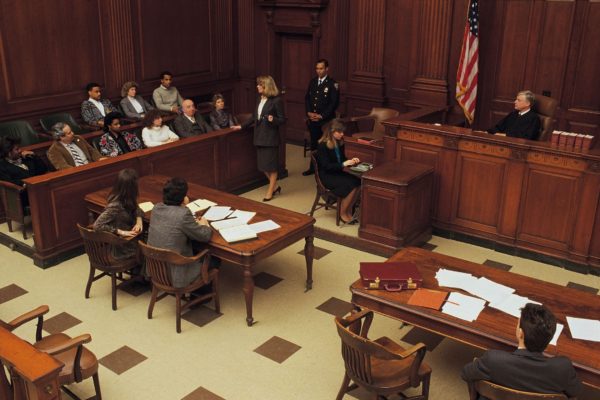[column parallax_bg=”disabled” parallax_bg_inertia=”-0.2″ extended=”false” extended_padding=”true” background_color=”” background_image=”” background_repeat=”” background_position=”” background_size=”auto” background_attachment=”” hide_bg_lowres=”false” background_video=”” vertical_padding_top=”0″ vertical_padding_bottom=”50″ more_link=”” more_text=”” left_border=”transparent” class=”” id=”” title=”” title_type=”single” animation=”none” width=”1/1″ last=”true”]
[column_1 width=”1/1″ last=”true” title=”” title_type=”single” animation=”none” implicit=”true”]
What To Know In Selecting A General Contractor
by Lisa Godfrey
Whether you are enclosing a screened porch or building a million-dollar home, selecting a general contractor is the most important first step. Anyone who undertakes a building project costing $30,000 or more must be licensed as a general contractor. The only exception to this requirement is if an individual builds on land that he or she owns, and intends to occupy the project for at least 12 months following its completion.
The North Carolina Licensing Board for General Contractors is the State entity which controls the licensing of all general contractors. In order to qualify, an individual must pass a licensing exam and show that he or she has sufficient assets to meet the Board’s requirements. There are three levels of licensure for general contractors. A limited license authorizes a general contractor to take on a project with a value up to $350,000. An intermediate license authorizes a general contractor to build a project costing up to $700,000. An unlimited license allows a general contractor to build a project of any value. It is important to remember that, when contracting with a general contractor, his or her license must be appropriate for the cost of the project.
The best way to research a general contractor’s license is to go to The North Carolina Licensing Board for General Contractors’ website, which can be found at www.nclbgc.com. On that website, you can determine whether the person you are researching has a license and at what level. You can also contact the Board via phone (919/571-4183) or fax (919/571-4703). In contacting the Board, you will want to determine whether the general contractor you are considering has a history of complaints, or if his or her license has ever been suspended or revoked. This information is open to the public and can be obtained by contacting the Board.
You may also want to research the history of the general contractor you are considering with the local Better Business Bureau. Usually, Better Business Bureaus will provide public access to their files on any contractor who has been before the Bureau on any matter.
Both of these methods should provide more reliable information than a general contractor’s own references. References are important; however, you should remember that a general contractor is only going to provide you with names and addresses of prior customers who have been satisfied with the contractor’s work.
After you have selected a responsible general contractor who is properly licensed, the next step is to be sure that you are entering into a written contract that will protect you as the job progresses. You should most definitely have a written agreement with your general contractor. This agreement, at a minimum, should contain a start and end date for the job, a clear description of the work to be performed, the price for the project and a warranty.
Usually, the description of the work refers to plans, drawings and/or specifications which may be provided either by an architect or by the general contractor. It is very important that the property owner understand exactly what items are covered by the contract and which items are not. Do not be afraid to ask questions if an item seems unclear.
Most building contracts are either “fixed price” or “cost plus”. A fixed price contract contains one guaranteed price for the performance of a specified amount of work. Within a fixed price contract, there may be set allowances. These allowances give property owners an amount they are entitled to spend for materials that are normally selected by them. If the property owner exceeds the set allowance, there will be an additional charge in the contract for the job.
Cost plus contracts are more complicated and are usually used for large renovation projects or custom homes. A cost plus project requires the general contractor to provide specific evidence of all expenses that he or she incurs in the progression of the job. The property owner pays all expenses plus a fixed percentage to the general contractor for administering and supervising the work. Cost plus contracts require a great deal more attention on the part of the property owner to review the weekly or monthly draw requests.
Finally, the written contract should provide an express warranty. A warranty is simply a promise by the general contractor that he or she will repair or replace any defective materials and/or workmanship for a specified period of time.
When entering into a written contract with a general contractor, it is advisable to have this contract reviewed by a lawyer. Many general contractors write their own contracts, and the contracts may contain ambiguous or inconsistent terms. Before signing a contract, it is well worth the cost of an hour or two of attorney time to be sure that the contract is clear and fair to the property owner. This can save thousands of dollars later if a problem should arise.
Lisa Godfrey is an attorney in the Charlotte office of Knox Law Center. The firm’s website is www.knoxlawcenter.com. She can be reached at 704-315-2363 or 866-704-9059 (Toll free) or [email protected].
[/column_1]
[/column]
[column parallax_bg=”fixed” parallax_bg_inertia=”-0.2″ extended=”true” extended_padding=”true” background_color=”” background_image=”http://knoxlawcenter.com/wp-content/uploads/scales-of-justice-extra-white.jpg” background_repeat=”” background_position=”” background_size=”auto” background_attachment=”” hide_bg_lowres=”false” background_video=”” vertical_padding_top=”30″ vertical_padding_bottom=”70″ more_link=”” more_text=”” left_border=”transparent” class=”” id=”REQUEST-CONSULTATION” title=”” title_type=”single” animation=”none” width=”1/1″ last=”true”]
[text_divider type=”single”]
How Can We Serve You?
[/text_divider]
[column_1 width=”1/1″ last=”true” title=”” title_type=”single” animation=”none” implicit=”true”]
[push h=”-20″]
Fields with * are required.
[push h=”20″]
[/column_1]
[column_1 width=”1/1″ last=”true” title=”” title_type=”single” animation=”none” implicit=”true”]
[/column_1]
[/column]






